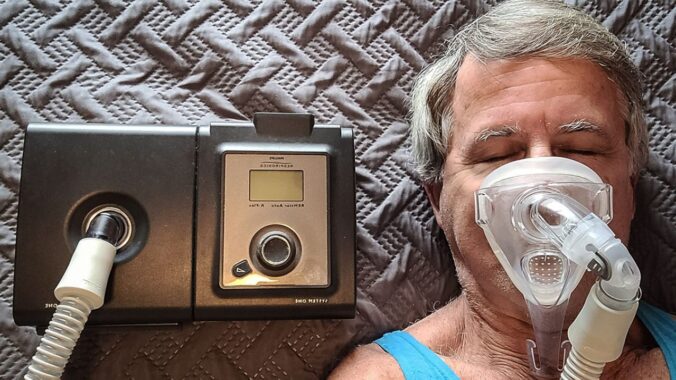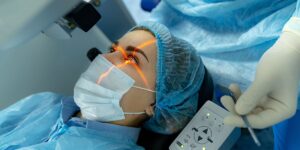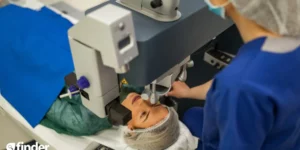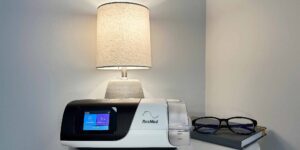Sleep apnea is a sleep disorder that affects millions of people worldwide. It is characterized by pauses in breathing or shallow breaths during sleep, which can disrupt the sleep cycle and lead to a range of health issues. If you or a loved one has been diagnosed with sleep apnea, finding the right sleep apnea machine is essential for getting restful nights and improving overall well-being.
Understanding Sleep Apnea
Before exploring the role of sleep apnea machines, it’s important to understand what sleep apnea is and the impact it can have on your health. Sleep apnea is a condition where the airway becomes partially or completely blocked during sleep, causing breathing to stop or become shallow. This can result in frequent waking during the night, loud snoring, excessive daytime sleepiness, and other symptoms.
What is Sleep Apnea?
Sleep apnea is categorized into three types: obstructive sleep apnea (OSA), central sleep apnea (CSA), and complex or mixed sleep apnea. OSA is the most common type and occurs when the throat muscles relax, causing the airway to collapse or narrow during sleep. CSA, on the other hand, involves the brain failing to send the right signals to the muscles that control breathing. Complex or mixed sleep apnea is a combination of both OSA and CSA.
Obstructive sleep apnea (OSA) is often associated with certain risk factors, such as obesity, smoking, alcohol consumption, and family history. The excess weight in the neck area can put pressure on the airway, making it more prone to collapse during sleep. Smoking and alcohol can relax the throat muscles, further contributing to the blockage. Additionally, if you have a family history of sleep apnea, you may be genetically predisposed to the condition.
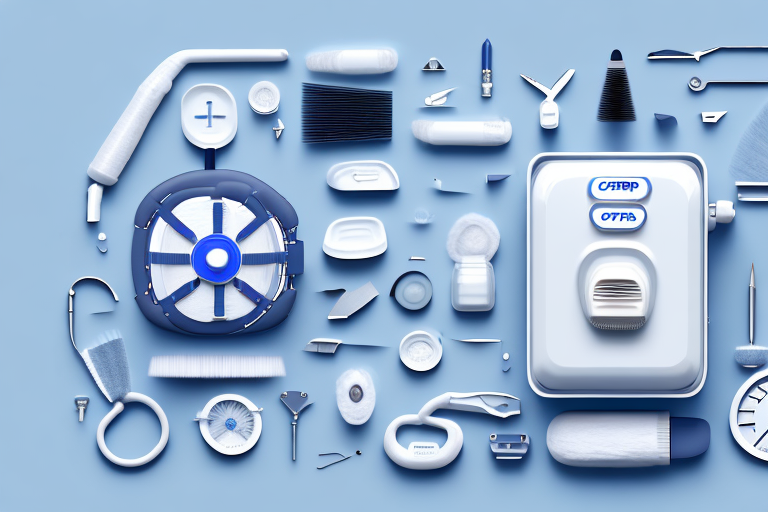
Central sleep apnea (CSA) is usually caused by underlying medical conditions, such as heart failure, stroke, or brainstem damage. These conditions can disrupt the brain’s ability to send proper signals to the muscles that control breathing, leading to pauses in breathing during sleep.
See Also: Sleep Apnea Machine Features
The Impact of Sleep Apnea on Health and Well-being
Sleep apnea is more than just a nuisance that disrupts your sleep. It can have serious health consequences if left untreated. Chronic sleep apnea has been linked to an increased risk of high blood pressure, heart disease, stroke, diabetes, and other conditions. The repeated drops in blood oxygen levels that occur during sleep apnea episodes can put a strain on the cardiovascular system, leading to long-term damage.
Furthermore, sleep apnea can have a significant impact on your quality of life. The constant interruptions in sleep can leave you feeling exhausted and fatigued during the day, making it difficult to concentrate and perform daily tasks. This can affect your productivity at work, your relationships, and your overall well-being. The excessive daytime sleepiness can also increase the risk of accidents, both at home and on the road.
In addition to the physical and cognitive effects, sleep apnea can also take a toll on your emotional health. The chronic sleep deprivation and the resulting fatigue can lead to irritability, mood swings, and even depression. It can strain relationships and make it challenging to maintain a positive outlook on life.
It’s important to recognize the signs and symptoms of sleep apnea and seek appropriate treatment. With proper management, the negative impact of sleep apnea on your health and well-being can be minimized, allowing you to enjoy restful nights and vibrant days.
The Role of Sleep Apnea Machines
Sleep apnea machines are designed to help keep the airway open during sleep, allowing for uninterrupted breathing and a better quality of sleep. They work by delivering a continuous stream of air pressure to keep the airway from collapsing. These machines are commonly prescribed as part of a treatment plan for sleep apnea and can greatly alleviate its symptoms.
Sleep apnea is a sleep disorder characterized by pauses in breathing or shallow breaths during sleep. These pauses can last from a few seconds to a few minutes and can occur multiple times throughout the night. Sleep apnea machines, also known as positive airway pressure (PAP) devices, are specifically designed to address this issue and provide relief to individuals suffering from sleep apnea.
When a person with sleep apnea uses a sleep apnea machine, such as the Continuous Positive Airway Pressure (CPAP) machine, they wear a mask that fits over their nose or mouth. The machine then delivers a constant flow of air pressure through the mask, which acts like a splint to keep the airway open and prevent apnea events.
How Sleep Apnea Machines Work
The most common type of sleep apnea machine is the Continuous Positive Airway Pressure (CPAP) machine. CPAP machines consist of a mask that fits over your nose or mouth and a machine that delivers a constant flow of air pressure through the mask. The air pressure acts like a splint, keeping the airway open and preventing apnea events.
CPAP machines are equipped with a motor that draws in air from the surrounding environment. The air is then filtered and pressurized before being delivered through the mask. The pressure settings can be adjusted based on the individual’s needs, as prescribed by a healthcare professional.
Some CPAP machines also come with additional features, such as heated humidifiers, which help to prevent dryness and irritation in the airways. These humidifiers add moisture to the air, making the therapy more comfortable and reducing potential side effects.
Benefits of Using a Sleep Apnea Machine
Using a sleep apnea machine can provide numerous benefits for individuals with sleep apnea. First and foremost, it improves the quality of sleep, allowing for more restful nights and better daytime functioning. By ensuring a continuous flow of air, sleep apnea machines help to eliminate the interruptions in breathing that can disrupt sleep and lead to daytime fatigue.
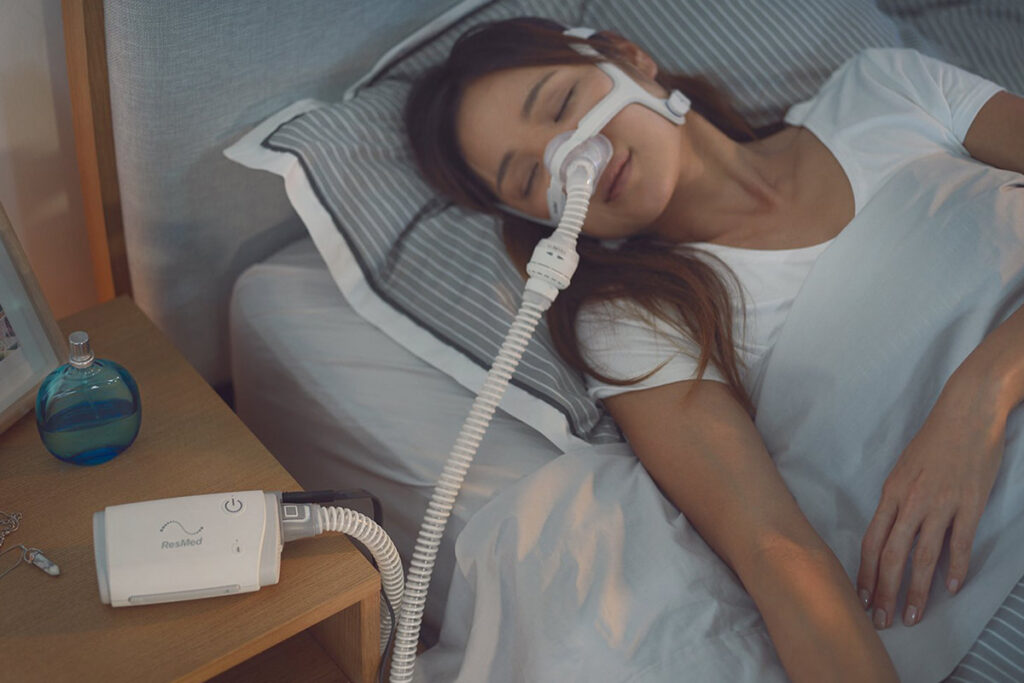
Furthermore, the use of sleep apnea machines can have a positive impact on overall health. Sleep apnea has been linked to various health conditions, including high blood pressure, heart disease, stroke, and diabetes. By effectively treating sleep apnea, these machines can reduce the risk of developing these serious health conditions.
In addition to the health benefits, sleep apnea machines can also improve the quality of life for individuals with sleep apnea. They can reduce or eliminate snoring, which can be disruptive to both the individual and their sleep partner. Improved energy levels and daytime alertness are also common benefits, as individuals experience more restorative sleep.
It is important to note that the effectiveness of sleep apnea machines depends on consistent and proper usage. Adhering to the prescribed treatment plan and regularly maintaining the machine and its components are crucial for optimal results.
In conclusion, sleep apnea machines play a vital role in the management and treatment of sleep apnea. By delivering a continuous stream of air pressure, these machines help to keep the airway open during sleep, improving the quality of sleep and reducing the risk of associated health conditions. The benefits of using a sleep apnea machine extend beyond better sleep, encompassing improved overall well-being and enhanced quality of life.
Types of Sleep Apnea Machines
When it comes to treating sleep apnea, there are several types of machines available, each with its own unique features and benefits. These machines are designed to provide continuous positive airway pressure (CPAP) to keep the airway open during sleep, ensuring a restful night’s sleep for individuals with sleep apnea.
The most common types of sleep apnea machines include Continuous Positive Airway Pressure (CPAP) machines, Bi-level Positive Airway Pressure (BiPAP) machines, and Automatic Positive Airway Pressure (APAP) machines.
Continuous Positive Airway Pressure (CPAP) Machines
CPAP machines are considered the gold standard in sleep apnea treatment. They work by delivering a constant and continuous stream of air pressure to keep the airway open throughout the night. This steady flow of air helps prevent the collapse of the airway, allowing individuals to breathe freely and without interruption.
CPAP machines are typically prescribed for individuals with moderate to severe sleep apnea. They come with various features to enhance comfort, such as adjustable straps, humidifiers to prevent dryness, and masks that fit securely over the nose or mouth.
Bi-level Positive Airway Pressure (BiPAP) Machines
Similar to CPAP machines, BiPAP machines also deliver positive airway pressure to keep the airway open. However, they offer two levels of air pressure: a higher pressure during inhalation and a lower pressure during exhalation.
This dual-pressure feature can be particularly beneficial for individuals who require different levels of pressure to breathe comfortably. For example, some individuals may find it easier to inhale with a higher pressure, while exhaling with a lower pressure can provide a more natural breathing experience.
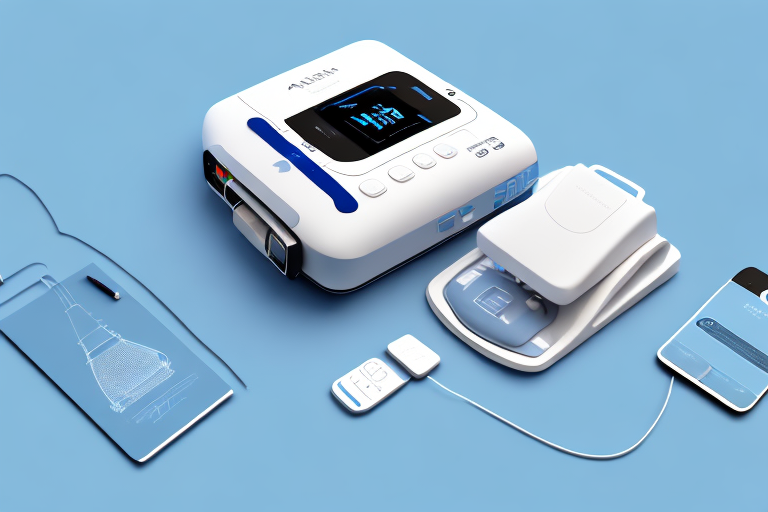
Automatic Positive Airway Pressure (APAP) Machines
APAP machines are the most advanced type of sleep apnea machines available. These machines continuously monitor your breathing patterns throughout the night and automatically adjust the air pressure accordingly.
This dynamic adjustment feature is particularly useful if your breathing patterns change during sleep or if you are unsure of the optimal air pressure for your needs. The machine can detect variations in your breathing and make real-time adjustments to ensure that you receive the right amount of pressure at all times.
APAP machines also come with additional features, such as data recording capabilities, which allow you and your healthcare provider to track your sleep patterns and make any necessary adjustments to your treatment plan.
In conclusion, when it comes to treating sleep apnea, there are several types of machines available, each with its own unique features and benefits. Whether you opt for a CPAP machine, a BiPAP machine, or an APAP machine, the goal is the same: to provide continuous positive airway pressure and ensure a restful night’s sleep. Consult with your healthcare provider to determine which type of sleep apnea machine is best suited for your individual needs.
Factors to Consider When Choosing a Sleep Apnea Machine
When choosing a sleep apnea machine, there are several important factors to consider that can affect your overall experience and treatment success.
Comfort and Fit
Comfort is essential when using a sleep apnea machine. Look for a machine that comes with a mask that fits well and is comfortable to wear throughout the night. Consider trying different mask styles and sizes to find the one that works best for you.
Noise Level
Some sleep apnea machines can be noisy, which can disturb your sleep or your partner’s sleep. Look for machines that offer quiet operation and have noise-reduction features. This can greatly enhance your sleep experience.
Portability and Travel-friendliness
If you travel frequently or have an active lifestyle, consider the portability of the sleep apnea machine. Look for machines that are lightweight, compact, and easy to travel with. Some machines even come with travel-friendly features such as battery operation or universal voltage compatibility.
Cost and Insurance Coverage
Sleep apnea machines can vary in price, so it’s important to consider your budget. It’s also worth checking with your health insurance provider to see if they cover the cost of a sleep apnea machine. Insurance coverage can significantly reduce the financial burden of purchasing a sleep apnea machine.
Choosing the right sleep apnea machine is crucial for effectively managing sleep apnea and improving your quality of life. By understanding sleep apnea, exploring the role of sleep apnea machines, and considering important factors when choosing a machine, you can make an informed decision that leads to restful nights and better overall well-being.

